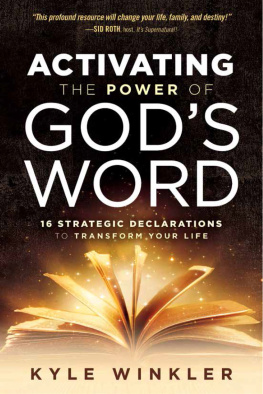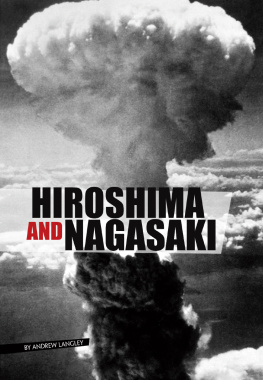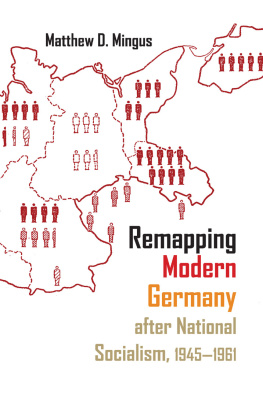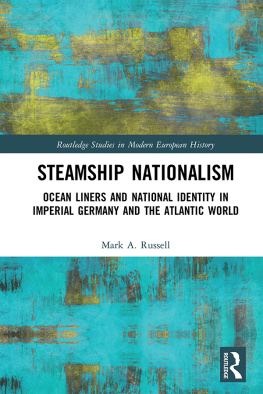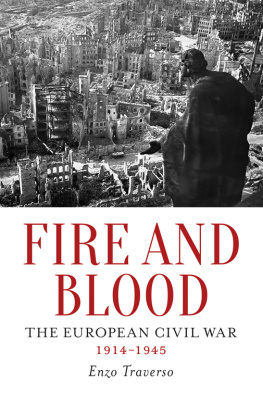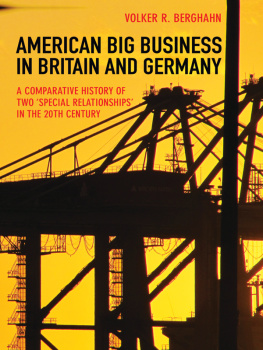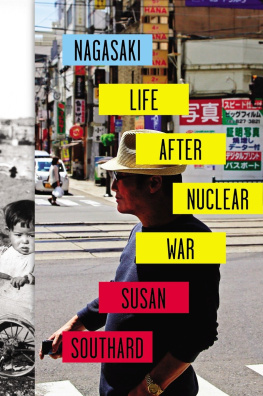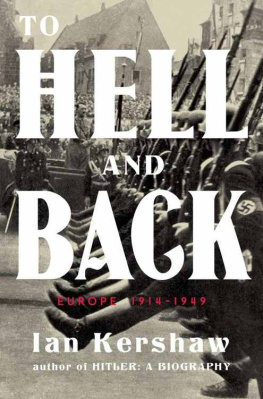HEINRICH AUGUST WINKLER
THE AGE OF CATASTROPHE
A HISTORY OF THE WEST, 1914-1945
TRANSLATED BY STEWART SPENCER
THE AGE OF CATASTROPHE
ii
HEINRICH AUGUST WINKLER
THE AGE OF CATASTROPHE
A HISTORY OF THE WEST, 1914-1945 Translated by Stewart Spencer
YALE UNIVERSITY PRESS NEW HAVEN AND LONDON
in
First published in English by Yale University Press in 2015
English language translation copyright 2015 Stewart Spencer
Originally published under the title Geschichte des Westens: Die Zeit der Weltkriege, 1914-1945 by Heinrich August Winkler 2011 Verlag C. H. Beck oHG, Munich, the second volume in the authors trilogy Geschichte des Westens
All rights reserved. This book may not be reproduced in whole or in part, in any form (beyond that copying permitted by Sections 107 and 108 of the U.S. Copyright Law and except by reviewers for the public press) without written permission from the publishers.
For information about this and other Yale University Press publications, please contact: U.S. Office:
Typeset in Minion Pro by IDSUK (DataConnection) Ltd Printed in Great Britain by TJ International Ltd, Padstow, Cornwall
Library of Congress Cataloging-in-Publication Data
Library of Congress Control Number: 2015947312
ISBN 978-0-300-20489-6
A catalogue record for this book is available from the British Library.
The translation of this work was funded by Geisteswissenschaften International -Translation Funding for the Humanities and Social Sciences from Germany, joint initiative of the Fritz Thyssen Foundation, the German Federal Foreign Office, the collecting society VG WORT and the Borsenverein des Deutschen Buchandels (German Publishers & Booksellers Association).
10 9 8 7 6 5 4 3 2 1
For Dorte
vi
CONTENTS
The International Revolution is Delayed: The Rise of the Soviet
The Partition of Europe (II): Radical Changes and Deportations 847
INTRODUCTION
The precursor to this book, Geschichte des Westens: Von den Anfiingen in der Antike bis zum 20. Jahrhundert, published in German in the autumn of 2009, covered the history of the West from its earliest manifestations through Jewish monotheism, late antiquity and Christianity to the outbreak of the First World War. Central to my narrative in that work and in this is the evolution of what I call the normative project of the West, by which I principally mean the ideas of the two revolutions - the American and the French - of the late eighteenth century. These are ideas that the old European West struggled either to assimilate or to reject until well into the twentieth century. These are also ideas that the inventor nations repeatedly violated, and yet they continue to provide the yardstick by which the West must be judged whenever it seeks to validate its values vis-a-vis the non-western world.
The current work deals with an exceptional period in world history, for the three decades between 1914 and 1945 were dominated by conflicts, crises and catastrophes in a way practically unprecedented in modern times - only the Thirty Years War of 1618 to 1648 had a remotely comparable impact. Throughout the first half of the twentieth century Germany was central to developments taking place over a far wider area, just as it had been in the first half of the seventeenth century. Indeed, its role was so central between 1914 and 1945 that this period can with some justification be described as the German chapter in the history of the West. It was also the most terrifying chapter in the history of humankind. It ended with the annihilation of European Jews, the most rigorously implemented mass murder in the history of the twentieth century - a period already particularly well stocked with state-organized crimes. And it brought with it the downfall of the Third Reich.
Many writers, including the sociologist Zygmunt Bauman, have seen the Holocaust as the result of a specifically modern quest for unambiguousness, a quest aimed at a functional rationality and concerned with the avoidance of ambivalence As such, it is seen as a borderline instance of the technological social engineering that occupied a significant place in the thinking of the
Xi
interwar period. Moreover, a large number of observers have long drawn attention to the basic experience of boundless violence of the First World War, violence practised hitherto only in colonial wars and described by the American historian and diplomat George F. Kennan as the seminal catastrophe of the twentieth century. Visions of what might be possible in terms of social policies and an increasing willingness to accept mechanical methods of killing other human beings were phenomena that no longer admitted of national boundaries. Many of the developments that took place after 1918 can be viewed from this perspective, and yet this still does not explain why the Holocaust was a German crime against humanity. The present examination of the course of German history between 1914 and 1945 should be seen as an attempt to explain how a country that is culturally a part of the West could so obstinately refuse to respect the Wests normative project and the idea of inalienable human rights that it plunged not only itself but the rest of the world into a state that can be described only as catastrophic.
If Woodrow Wilson had had his way, the period after 1918 would have resulted in the European triumph of western democracy, and yet by 1925 the German economist Moritz Julius Bonn was already referring to a crisis in European democracy Central to his analysis were the social and intellectual changes brought about by the First World War: the workers increase in power and the resultant fears on the part of the bourgeoisie, and the militarization of thinking and the ensuing loss of faith in a civilian solution to conflicts on the basis of uncontested norms and within the framework of acknowledged institutions.
Of the new Continental European states that came into existence in the wake of the First World War on the strength of democratic constitutions, only two could still be described as western democracies two decades later: Czechoslovakia and Finland. The others were by then being ruled by more or less dictatorial regimes that had adopted those aspects of the western legacy that reflected their rulers interests, while rejecting the idea of democracy in the form of the principle of a nation une et indivisible To the extent that these new states were not pure nation states but in many cases clearly based on the notion of nationality, this reception of western and, specifically, French ideas contained within it the germ of serious conflict.
One novel aspect of the political systems of the interwar years was the appearance of a new type of dictatorship in the form of totalitarian regimes. The contentious term totalitarian is intended to refer to states in which the monopoly on power and the degree of repression go far beyond that normally found in conventional dictatorships such as overt or covert military regimes. What was new about these totalitarian regimes was the claim that they made on every aspect of their inhabitants lives and the political aim of producing a new kind of individual. No matter how much they may have differed on every other point, the dictatorships established by Lenin, Mussolini and Hitler were
very similar in this regard. Western democracies saw in Russian Bolshevism a far greater threat than they did in Fascism, which first came to power in Italy in 1922 and which conservative politicians and liberal journalists long regarded with a certain sympathy. It needed the experience of a far more radical, far more aggressive and far more totalitarian Fascist regime - that of National Socialist Germany - before the Anglo-Saxon powers could be persuaded to revise their view of Communism and form an alliance with its principal representative, the Soviet Union.


